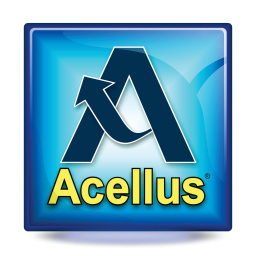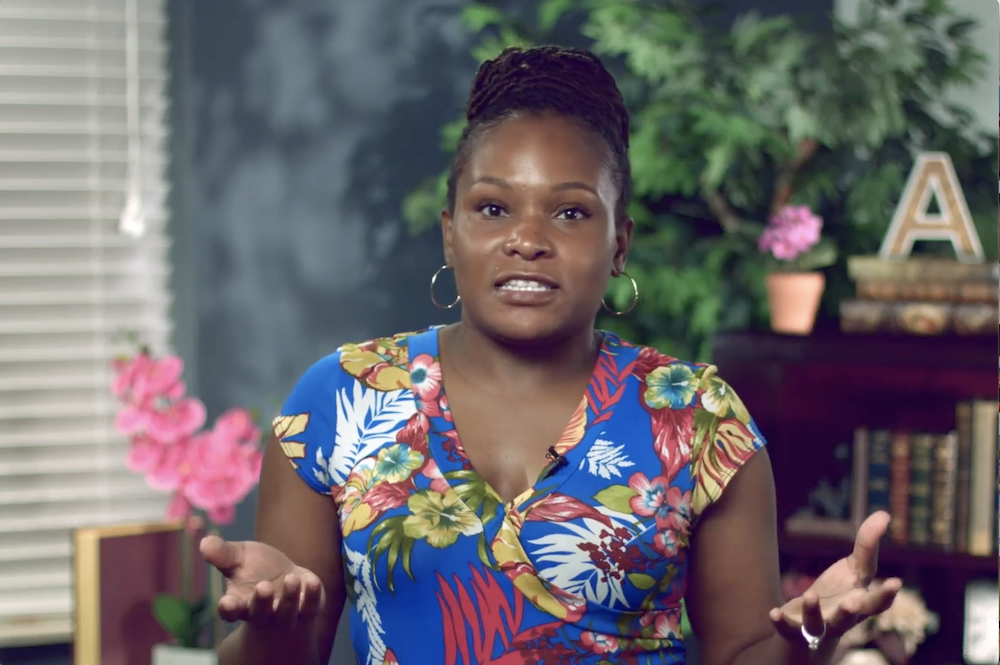English II

Course Features
Course Details
Course Overview
The English II course is designed to deepen students' understanding and appreciation of literature while developing their language and communication skills. Throughout the course, students will engage with a variety of texts, including novels, short stories, speeches, poetry, and informational texts. They will explore key literary elements and techniques, such as theme, characterization, figurative language, and author's purpose, and learn how these elements contribute to the overall meaning and impact of the texts. The course also emphasizes the development of critical reading and writing skills, including active reading strategies, vocabulary analysis, grammar proficiency, essay writing, and research skills. By the end of the course, students will have honed their analytical and expressive abilities, enabling them to effectively engage with and interpret a wide range of literary and informational texts.
This course begins by introducing students to the elements of literature through an exploration of F. Scott Fitzgerald's novel, The Great Gatsby. They will learn active reading strategies specific to this text and develop their vocabulary analysis skills. Students will delve into the theme study with Nathaniel Hawthorne's short story, "The Golden Touch," and also strengthen their grammar proficiency. This course also focuses on sentence structure and characterization through analysis of O. Henry's "The Last Leaf" and Katherine Mansfield's "The Fly,". An emphasis is place on the writing process and vocabulary expansion, as well as the analysis of author's technique and literary devices. Students will also engage with seminal documents to analyze author's purpose and persuasive techniques and rhetoric, drawing from Martin Luther King Jr.'s "I Have a Dream" speech. Writing skills, such as editing and proofreading, developing informative essays, crafting argumentative essays, and conducting research is also covered. Lastly, this course will focus on analyzing poetry and studying Shakespearean drama with a focus on Julius Caesar.
Through the comprehensive and diverse range of texts and activities in this course, students will not only enhance their reading, writing, and critical thinking abilities but also develop a deeper understanding of the power of language and its role in literature and persuasive communication.
Sample Lesson - Elements of Literature
 This course was developed by the International Academy of Science.
Learn More
This course was developed by the International Academy of Science.
Learn More
Scope and Sequence
Unit 1: Foundations of Literature In this unit, students will explore the elements of literature and how they are employed in F. Scott Fitzgerald's novel, The Great Gatsby. They will also learn and apply active reading strategies specific to this text to enhance their comprehension and engagement. Furthermore, students will delve into the nuances of vocabulary, focusing specifically on connotation versus denotation, and how these choices contribute to the overall meaning and impact of the novel. Additionally, students will develop their skills in writing objective summaries, as well as making inferences in the context of literature, using Sir Arthur Conan Doyle's short story, "The Adventure of Silver Blaze," as a primary text for analysis.
Unit 2: Literature – Theme and Analysis This unit centers around the exploration of theme in literature, with a specific focus on Nathaniel Hawthorne's short story, "The Golden Touch." Students will learn how to formulate theme statements and analyze how the author develops and presents themes throughout the text. In conjunction with the theme study, students will also engage with the concept of subject-verb agreement in grammar, both in the context of "The Golden Touch" and through practice exercises. They will further develop their understanding of the evolution of theme and explore the role of claims and evidence in literary analysis.
Unit 3: Literature – Character Analysis This unit concentrates on grammar skills related to sentence structure, with a specific focus on complete sentences versus fragments and run-ons. Students will practice identifying and correcting these sentence errors. Additionally, they will examine the techniques of characterization, including direct versus indirect methods, in O. Henry's short story, "The Last Leaf," and Katherine Mansfield's short story, "The Fly." The unit will also cover compound sentences and their application in "The Fly." Furthermore, students will engage in character analysis and explore the interplay between character development and plot in Guy de Maupassant's short story, "The Piece of String."
Unit 4: Literature - The Writing Process This unit centers on the writing process, with an emphasis on effective strategies for editing and proofreading. Students will practice applying these skills to improve their own writing. In addition, they will expand their vocabulary through the study of roots and affixes and learn how to utilize reference materials to enhance their understanding of word meanings. The unit will also cover decoding and context clues as valuable tools for vocabulary acquisition. Furthermore, students will explore the concepts of tone and mood, particularly in Saki's short story, "The Storyteller," and analyze how word choice contributes to the establishment of tone. The unit will culminate in a study of flashback versus foreshadowing in W.W. Jacobs' short story, "The Monkey's Paw."
Unit 5: Literature – Figurative Language The fifth unit focuses on the analysis of author's technique and literary devices in various texts. Students will study Edgar Allan Poe's "Words with a Mummy" to examine author's technique, while Mark Twain's "The Danger of Lying in Bed" will serve as a primary text for exploring literary devices. Students will gain an understanding of figurative language and its effects on the reader. They will also learn about allusion and allegory through excerpts from George Orwell's Animal Farm. Moreover, students will analyze the author's point of view in selected excerpts from Animal Farm and practice writing narrative essays with a particular emphasis on dialogue, sequence of events, descriptive language, and the overall structure of a narrative.
Unit 6: Nonfiction – Analysis of the Author This unit delves into informational texts, particularly seminal documents, and the analysis of author's purpose. Students will examine the Gettysburg Address by Abraham Lincoln to explore the concepts of active versus passive voice, word choice, tone, and author's purpose. They will develop an understanding of how these choices shape the overall impact of persuasive texts. Students will also study Martin Luther King Jr.'s "I Have a Dream" speech, focusing on the development of ideas and the rhetorical devices employed. Furthermore, they will explore the relationship between Lincoln's and MLK's speeches, comparing and contrasting their persuasive techniques.
Unit 7: Nonfiction – Persuasive Texts This unit centers on persuasive texts, focusing on the use of rhetoric and its impact. Students will analyze Martin Luther King Jr.'s "I Have a Dream" speech to identify and evaluate the rhetorical strategies employed. They will examine the impact of rhetoric on audience persuasion. Additionally, the unit will cover the concept of parallelism in MLK's speech. Students will engage in cross comparisons between Lincoln's and MLK's speeches to gain a deeper understanding of the persuasive techniques employed by both historical figures.
Unit 8: Nonfiction – Editing and Proofreading This unit centers on the writing process, with an emphasis on editing and proofreading skills. Students will practice applying these skills to their own writing, specifically focusing on the proper use of colons and semicolons, commas, verb tenses, and voice. The unit will also include writing exercises that reinforce these grammatical concepts.
Unit 9: Nonfiction – Informative Texts This unit revolves around informational texts and the development of informative essays. Students will learn how to connect ideas effectively, develop supporting details and evidence, and create outlines for their essays. They will study text features and gain proficiency in identifying the main idea of a health study and summarizing its content. Furthermore, students will receive guidance on crafting a thesis statement, writing engaging introductions and conclusions, and structuring effective body paragraphs.
Unit 10: Nonfiction – Argumentative Texts This unit focuses on argumentative texts and the analysis of the author's argument. Students will analyze Patrick Henry's "Give Me Liberty Or Give Me Death" speech, examining the author's argumentative techniques. They will explore the concept of word choice in persuasive writing and assess the validity of arguments through relevant evidence. Students will engage in writing argumentative essays, distinguishing between claims and counterclaims and effectively using reasons and evidence to support their arguments. They will also develop skills in crafting relationships between ideas, selecting appropriate diction, and utilizing transitions effectively. The unit will conclude with guidance on developing style and tone in argumentative writing.
Unit 11: Research Skills and Public Speaking This unit centers on collegial conversations and research skills. Students will explore primary and secondary sources and understand their significance in academic research. They will investigate the impact of primary and secondary sources on the development of ideas. Additionally, students will learn the research process, including narrowing a topic, gathering information, and utilizing strong evidence. They will delve into standardized citation formats and understand how to incorporate italics, quotes, and text citations effectively. Students will also practice citing works and incorporating evidence from texts. The unit will provide guidance on crafting strong introductions, body paragraphs, and conclusions in research-based writing. Moreover, students will explore public speaking techniques and the use of technology and digital media in presentations.
Unit 12: Poetic Analysis This unit focuses on the study of poetry and the analysis of poetic elements. Students will examine Robert Frost's "The Road Not Taken" and Langston Hughes' "Our Land" to explore the elements of poetry, including structure, word choice, literary devices, and sensory details. They will analyze the impact of poetic devices and details in Frost's "Nothing Gold Can Stay" and compare and contrast the poetic elements of two Robert Frost poems. The unit will provide writing guidance for poetry analysis, including prewriting strategies for introductions, drafting effective body paragraphs, and revising conclusions.
Unit 13: Shakespearean Drama This unit centers on the study of Shakespearean drama, with a focus on Julius Caesar. Students will employ active reading strategies to engage with the play, analyzing the elements of drama in each act. They will explore the use of rhetoric in Act III and engage in a comparative analysis of two speeches. The unit will cover characterization in Acts IV and V, as well as the plot and theme of the play. Grammar tips on adverb clauses and the examination of loaded words, denotation, and connotation will further enhance students' understanding of persuasive language. Additionally, students will receive writing guidance for speech analysis, including prewriting strategies for introductions, drafting effective body paragraphs, and revising conclusions




